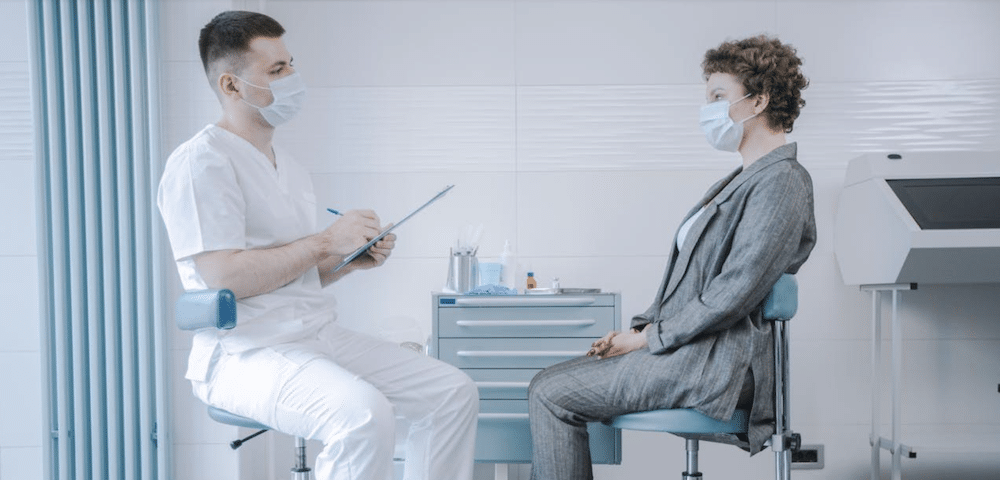
The idea of preparing for gender-affirming surgery can be pretty daunting, and if you’re anything like me, going under the knife is nothing compared to the horror of having to get your shit together. So, I’ve put together this guide to walk you step-by-step through the process of getting ready for your first trans surgery consult, so you’re 100% prepared for one of the most important conversations of your life.
Step 1: Figuring out your needs
Whether you’re getting the snip, the chop, a nip, a tweak, or the works, gender-affirming surgery always begins with an examination of the soul.
For some, figuring this shit out might be obvious. You need those tits gone! Or you need those tits to be massive! If this is you, go straight to step two.
For others, it might be a little (or a lot) more complex. you might find a body part distressing but not know what to do about it, or have a certain image in mind without knowing how to get there.
More often than not, talking is the best way through it. Talk to your healthcare team and trans friends for advice, or see if there’s a peer guide in your area. There’s also organisations like TransHub who have information about gender-affirming surgeries.
You could find also galleries on surgeons’ websites to become familiar with the names of procedures, or look at some surgery subreddits or transbucket. (However, please be aware that these places can often include some rather confronting surgical images.)
Step 2: Finding a trans-friendly surgeon
While ideally your GP would have the personal fax numbers of every trans-friendly surgeon tattooed on their inner thigh, it’s good to come prepared just in case they don’t.
Use the resources listed in Step 1, as well as trans.au to narrow down a list of possible surgeons you’d like to see for a trans surgery consult.
Step 3: Getting a referral
Make an appointment with your GP and ask them to write a referral to the surgeon you’ve chosen for the kind of surgery you’d like.
Some doctors will email the referral to the surgeon directly and some will print it out and give it to you; either way, make sure you get a copy of the letter just in case it gets lost in the electronic post.
Step 4: Making an appointment
Call the surgeon to make an appointment.
Step 5: Private health insurance
While you’re waiting, put your feet up and check out some private health insurance websites. Now is the time to look into insurance if you don’t have any, or re-familiarise yourself with your policy if you do.
Without item numbers (the name of the surgery according to Medicare) you can’t know for sure whether a particular policy will cover a particular surgery, but you can have a good guess by looking at the general categories included in the policy.
Many of these procedures aren’t covered by Medicare (yet!), so having private health is a must. And please note that if a procedure is classed as cosmetic surgery, it won’t be covered by insurance or Medicare.
Step 6: The big day
Some quick tips for going to your trans surgery consult:
- If you’re forgetful or nervous, it’s great to bring a support person.
- Wear uncomplicated and comfortable clothing.
- Make sure you bring your Medicare and insurance details, a list of questions, and a list of your medication.
At your consult, you’ll mostly be talking about your medical history and what you want out of surgery. Your surgeon will want to know that you’ve thought deeply about surgery and have realistic expectations.
While you will have to mention your feelings about your gender, most people won’t have to go into a huge amount of detail. Personally, I’m a middle-aged, over-educated white person and I know these privileges meant I was taken seriously, and people from marginalised groups often won’t have an experience that simple. I’ve been told it can be a good idea to bring a list of points to go through, and an advocate to stand with you if conversations get tough.
Your consult will probably involve the surgeon examining the area you want operated on, which can be awkward, but just remember: it’s not personal.
After the consult, you’ll receive a quote with prices (which some might say is where the real suffering begins!).
You made it; well done! Next stop, surgery town, where dreams come true and genders are affirmed.




